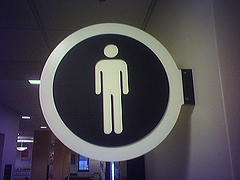Guest post by Peter Deitz
SocialActions
 I don’t know about you, but I am a big fan of open standards, particularly when my bladder Direct Messages me with the hashtag #urgent. Open standards (see picture below) guide me to a place where I can @reply in a hurry.
I don’t know about you, but I am a big fan of open standards, particularly when my bladder Direct Messages me with the hashtag #urgent. Open standards (see picture below) guide me to a place where I can @reply in a hurry.

In June, I hosted a discussion about Collaboration and Competition on Social Edge in which the topic of open standards for the nonprofit sector was raised. In response to a comment from David Wolff, I wrote:
Chris Messina recently made this point at the NetSquared conference as it relates to open standards for managing one’s identity online, ‘… [Social networks] should compete on the quality of the service that they’re providing, as opposed to just their lock in.’ Have a look at this interview, Building a Ubiquitous Social Network – Interview With Chris Messina for more information.
Jo Davidson then replied:
I replied to Jo:
The collaboration question becomes when and how, instead of if. Coming up with the standard, to ensure that it reflects as much nuances in the form of the data and knowledge is difficult. But the process absolutely can and should be done, across the social sector and in business as well.
Open data is a powerful force that can drive both collaboration and innovation. But a collaborative and innovative mindset is critical to ensuring that the open data that emerges is rich and reflects the best interests of everyone involved.
Where to go from here
The nonprofit technology community is filled with many bright minds and innovative thinkers. For better or worse, this passion often gets channeled toward one-off projects that benefit a single organization or a coalition of organizations.
I would like to see the brightest minds and most innovative thinkers in the social sector come together to create open standards that lift all organizations making use of the social web. The open standards that I’d like to see developed and adopted would help social benefit organizations seamlessly publish rich information about their donation opportunities in a structured format, helping major grant-makers and citizen philanthropists make smarter choices about their giving.
I’d also like to see open standards developed and adopted that help organizations publish rich information about their volunteer opportunities and the events they are hosting, helping individuals connect with service opportunities and events effortlessly. Finally, I’d like to see open standards developed and adopted that help nonprofits fill out their social media profile once and have it syndicated everywhere and anywhere on the fly.
From a technological perspective, these are modest goals. Where they become difficult to achieve is at the level of organizational culture, grant-making priorities, and leadership. I understand fully that this conversation has been launched on many occasions over the years. I’m hoping that in 2009, we can overcome cultural, funding, and leadership barriers to create a nonprofit sector that charts its own course toward open standards, open data and collaborative innovation.
If you are interested in participating in the open standards and open data conversation, please leave a comment below.
The next time your nonprofit’s stakeholders collectively Direct Message you with the hashtag #urgent, you’ll be able to @reply with a simple message: Open standards and open data are helping you respond quickly and effectively.
 This work is licensed under a Creative Commons Attribution 3.0 Unported.
This work is licensed under a Creative Commons Attribution 3.0 Unported.








